2024 – the Year of Byron - marks the 200th anniversary of the death of Lord Byron, the renowned British Romantic poet and a seminal figure in modern Greek history as a result of his undying commitment to the cause of freedom in the Greek War of Independence in 1821.
On 9 May 2024, to commemorate his Greek legacy, an event was held at the University of NSW in Sydney to launch a new book, “Byron: A Lord's Monologue. A Poetic and Iconographic Journey” written by Ms. Stella Sorotou, a well-known educator, author, poet and artist in the Greek Australian community, together with her exquisite portraits of Byron.
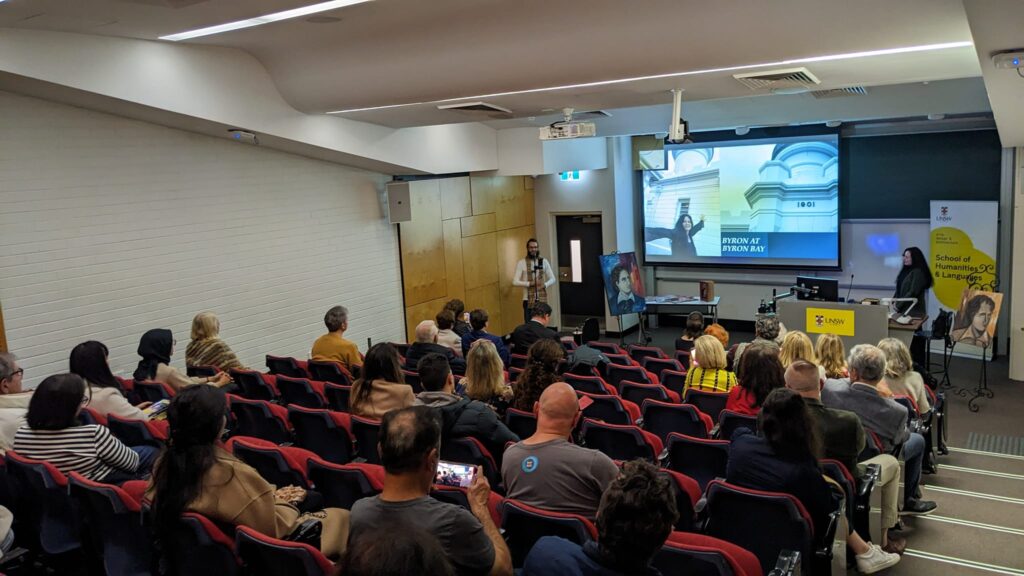
The Convenor of Greek Studies in the School of Humanities and Languages at UNSW, Dr Vassilis Adrahtas, spoke of the book and Stella’s distinctive paintings in the context of Byron’s incredible legacy. Dr Adrahtas praised the great British romantic poet as a hierophanic agent that embodied the spirit of modernity through the artistic affirmation of the individual and the triumph of literary Romanticism. Byron as a hero has come to life after his death and works inspired by his writings and actions, such "Byron: The Monologue of a Lord", are a testimony to his artistic, cultural and political contributions to Phihellenism.
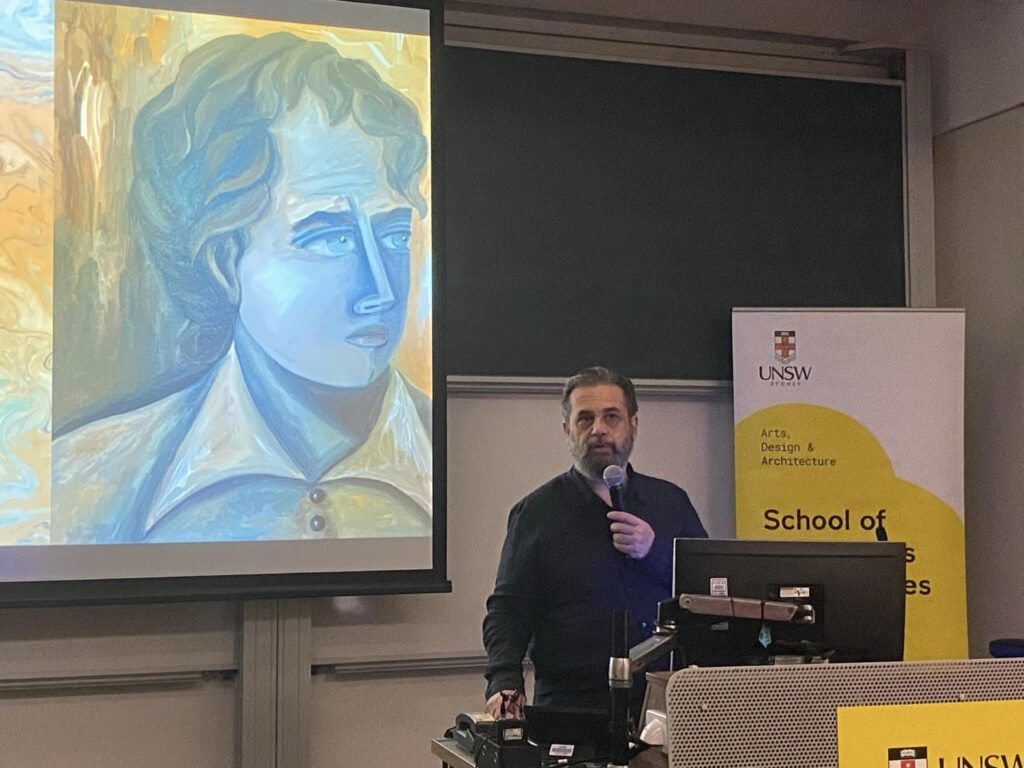
Dr Adrahtas noted that Byron, who was born in 1788, a year before the French Revolution, was truly a “child of the Revolution” and went on to become a Greek hero. It was not without coincidence that Dionysios Solomos - Greece’s national poet - composed a long ode to the memory of Lord Byron, the first verse of which still resonates:
For a moment, Liberty,
Let the war, the bloodshed sleep;
Hither come and silently
Over Byron's body weep.
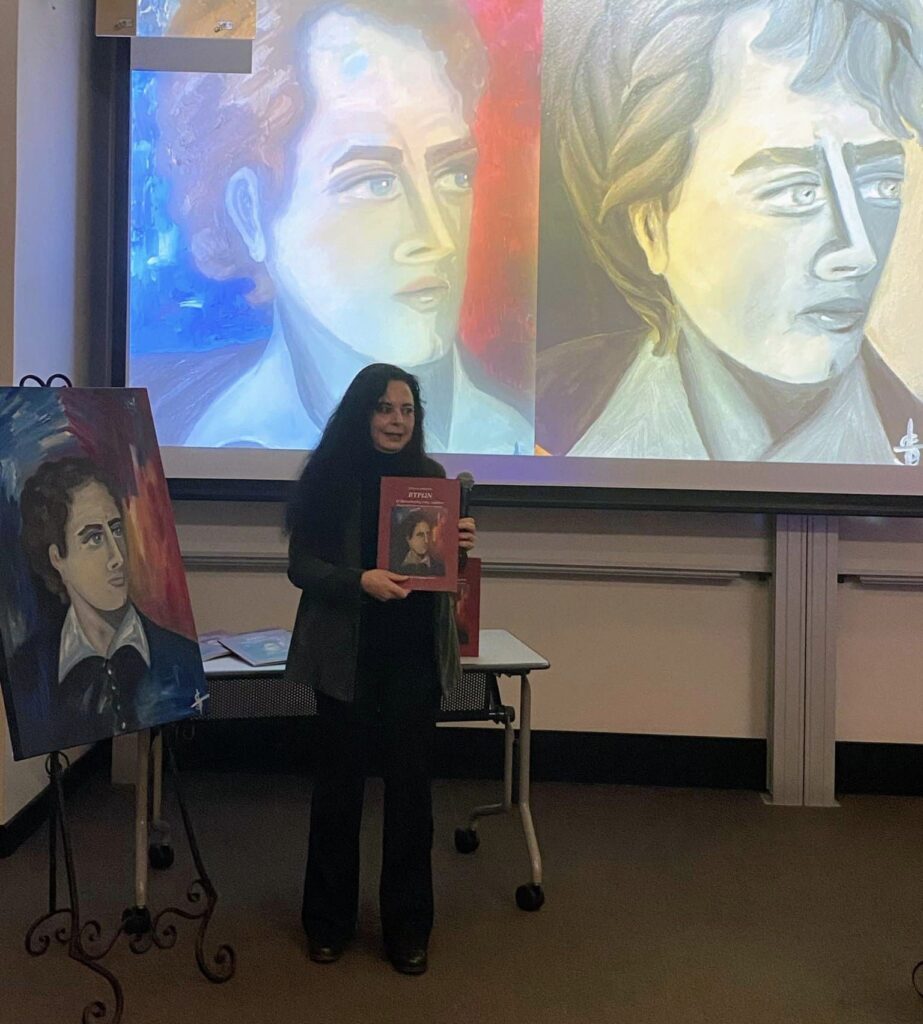
Stella Sorotou published her first poetic and iconographic collection, “Right to a Homeland” in 2023 and regularly publishes articles of educational and philosophical content. She is co-founder of DIDAS Art & Language Centre which organises art workshops, exhibitions, book launches and cultural events.
In her latest book, her poetic journey lets the reader see Byron both before and after death. We are reminded of his famous line: “I became Greek now that I die”.
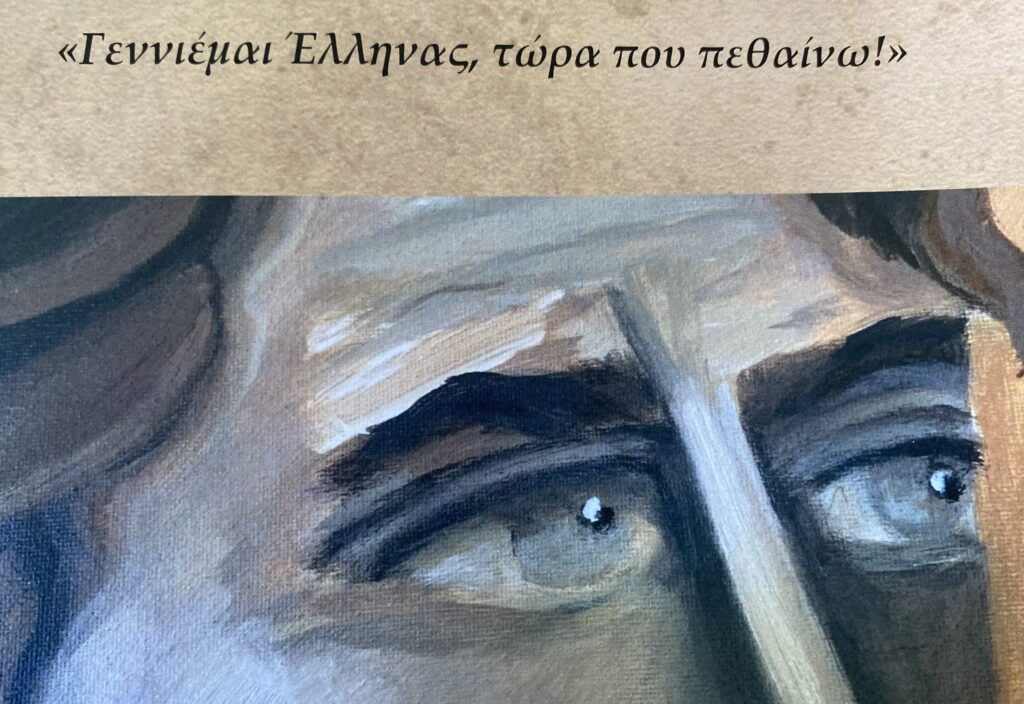
Later Byron is transported in our imagination to places like Byron Bay in northern NSW and its iconic lighthouse and we learn of a connection with our Byronic hero down under.
In 1770 Captain James Cook whilst sailing up the east coast of Australia in the Endeavour passed the eastern most point of the Australian mainland which he named Cape Byron after Vice Admiral John (“Foul-weather Jack”) Byron who happened to be the grandfather of the Romantic poet, Lord Byron.
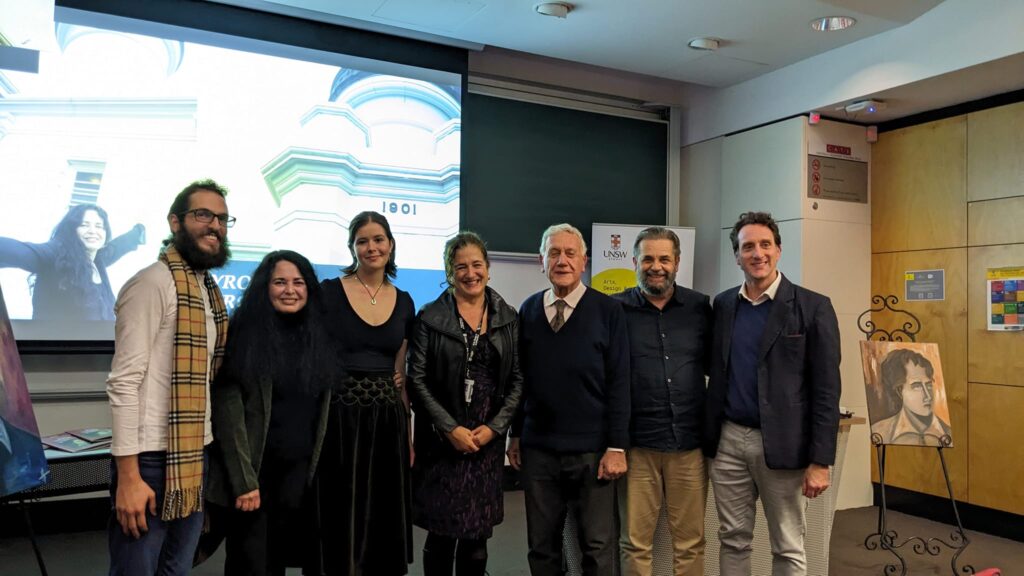
Byron was also a bitter opponent of Lord Elgin's removal of the Parthenon sculptures from Athens and furiously denounced Elgin's actions in his poems, The Curse of Minerva and Childe Harold's Pilgrimage.
Dion Vertzayias, a lawyer and linguist, then recited several of the poems from the book, in both Greek and English, capturing the essence of Byronism in the room.
The evening was capped by a superb solo performance by one of Stella’s students, Kyriakos Theodoulou, of a stirring song composed by him and dedicated to Lord Byron, “We will meet again”.
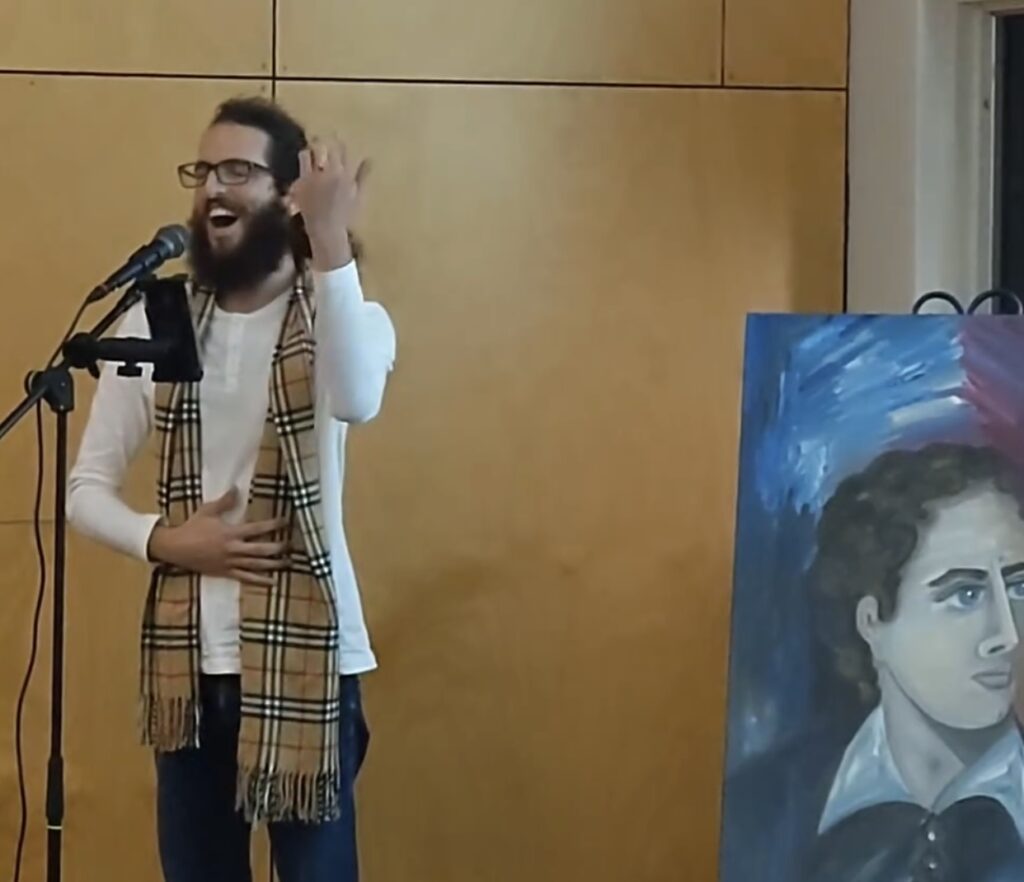
The MC on the night was Ms Eleni Cole, who is also a student of Stella Sorotou at St George Church, Rose Bay and for whom learning Greek is an important way of connecting with her Greek heritage.
Congratulations are also in order for the School of Humanities and Languages UNSW, the Foundation of Hellenic Studies UNSW and the Hellenic Society of UNSW for helping stage the event in honour of Lord Byron who will forever be part of our national consciousness and collective Hellenic memory.
As a side note, whilst sculptures and statues in this great Phihellene's honour abound throughout Greece, one this writer's favourites is the statue of a reflective Lord Byron in the verdant gardens of the Achilleion Place in Corfu.
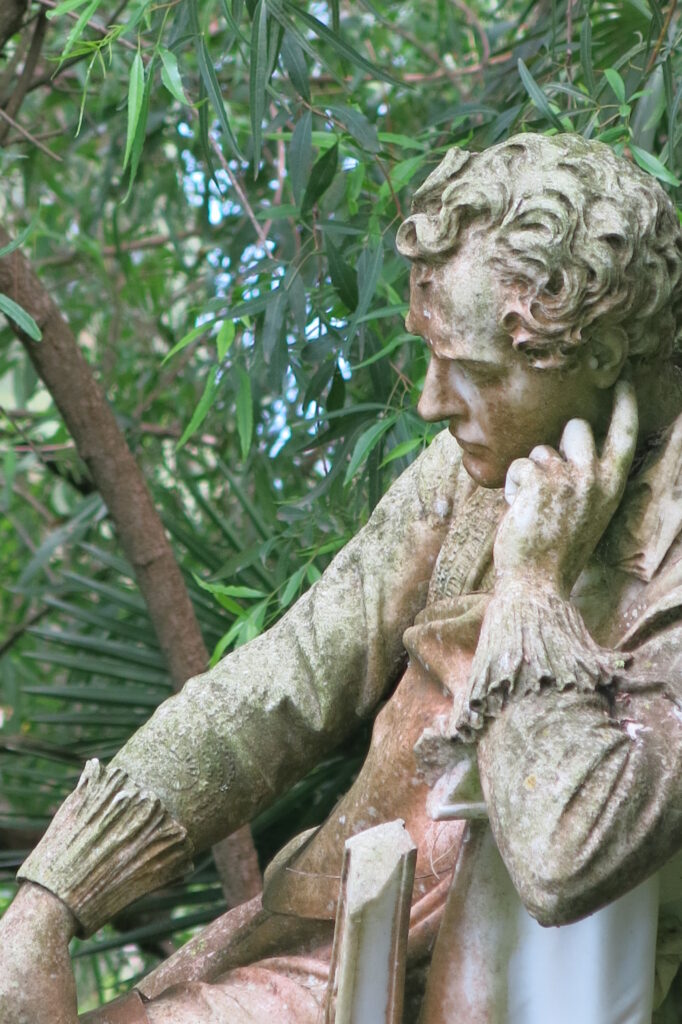
Stella Sorotou's latest artistic and poetic works continue in that noble tradition of honouring Byron's eternal legacy.
George Vardas is the Arts and Culture Editor.
(Photo credits of the event: Dr Vasilis Adrahtas)

